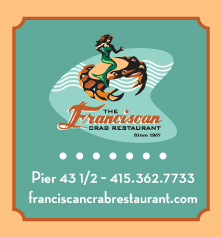CRIME: AN EYE ON CRIME:
Have you ever been propositioned?
By June 2007, the Marina Community Association was being contacted by a number of members complaining about an increase of crime in the Marina. In July 2007, the MCA, together with Supervisor Alioto-Pier (who had voted against the foot patrol ordinance), held a public meeting to discuss the increase in crime. At that meeting, Capt. Kevin Dillon of SFPD Northern Station committed an unforgivable sin for an employee of the City – he told the truth in public. He said that the foot patrol ordinance had reduced the number of officers he was able assign to patrol the Marina. The criminals, apparently being smarter than the Board of Supervisors, just observed where the police were deployed and took their business elsewhere. Within days, Captain Dillon, a very senior captain, was removed from his job and reassigned to the most junior captain’s role in the department. He retired shortly after.
We now have a new police chief who has implemented COMPSTAT, a system that collects accurate and timely data on incidence of crimes and allows the department to flexibly deploy resources to the areas most in need. The senior-level management of the department follows up on the results and holds the frontline supervisors responsible for their response. The system has been implemented in New York, Boston, Philadelphia, Miami, and Los Angeles, and has been shown to contribute to a significant reduction in violent crime.
One area of crime that has not decreased is the tendency for some people to take over our public sidewalks, intimidate residents and visitors, and affect our local businesses. At the moment, there is little that the police can do about this. Trespassing laws cover private property, not sidewalks. Laws prohibiting harassment, obstruction and aggressive panhandling require the victim to show up in court – not just the arresting officer. This not only requires an investment of time by the storeowner or the innocent victim, but it takes an officer off the street and possibly incurs overtime costs.
To address this problem, the mayor has placed Proposition L on the ballot, which will make it illegal to sit or lie down on a public sidewalk between 7 a.m. and 11 p.m. It does not limit an individual’s right to speak or protest. It applies only to sidewalks, but there are parks, plazas, public areas, and public benches where the law does not apply. The law requires police to warn the offender before citing them. It also requires the police department to submit written reports to the mayor and the Board of Supervisors on the effect of the law. It further requires the City to have a neighborhood outreach plan to provide social services to people who chronically sit or lie on public sidewalks.
In response to Proposition L, some members of the Board of Supervisors came up with Proposition M on the November ballot, which again mandates implementing a foot beat patrol program. At first blush, this appears to be just another attempt by the majority of the board to restrict the authority and question the judgment of the new police chief. However, hidden within Proposition M is a devious “poison pill” that is designed to kill Proposition L. The last section of Proposition M states that a vote in favor of M indicates “the voter’s intent that the Foot Beat Patrol Program supplant any City ordinance the voters approve at the November 2, 2010 election that bans lying or sitting on public sidewalks.” The practical effect of this poison pill is that Proposition L does not only need to get a majority of votes to win, but it also needs to get more votes than Proposition M.
The last minute inclusion of this poison pill is an indication of the cynical way in which the majority of the Board of Supervisors wishes to bend the election process to its will and override even a possible majority vote of the public. What was it that someone said about the similarity between politics and sausage making?
Alan Silverman is a Marina resident and board member of the Marina Community Association.


